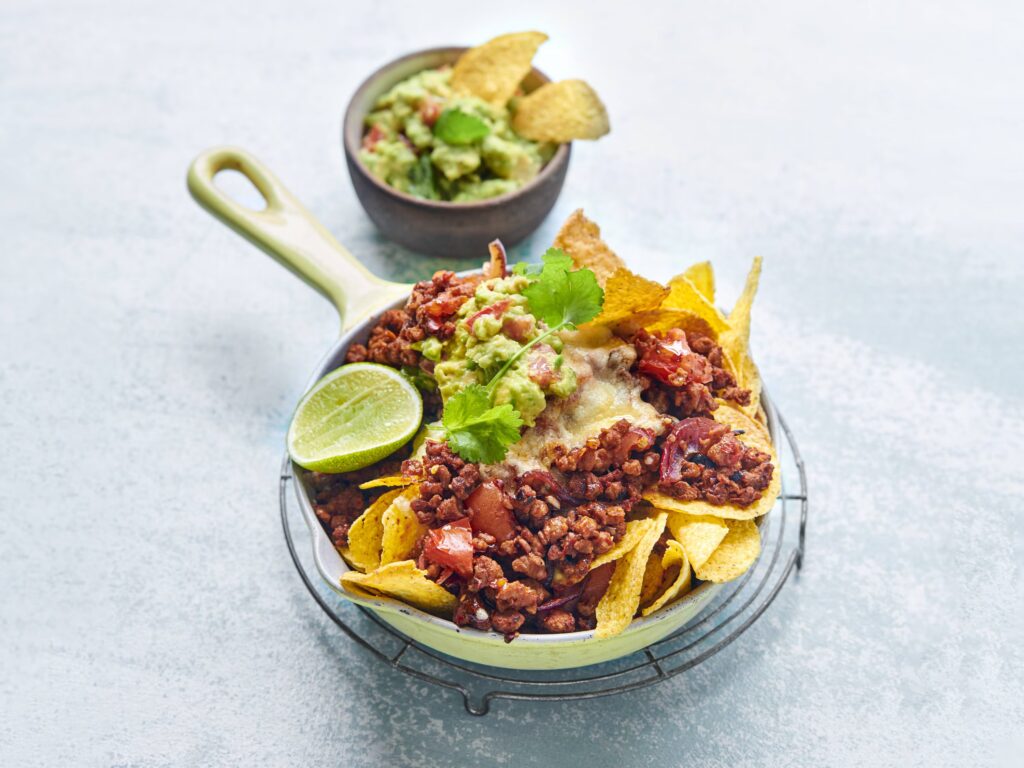
Plant-based companies are no longer allowed to label ground meat products as ‘mince’ in the Netherlands, according to a new ruling by the government’s food regulator.
The Dutch government’s goal to make half of the national protein intake come from plants by 2030 is already in motion, with meat consumption falling to its lowest levels since records began. But its food regulator has just made things harder.
In a new ruling, the Netherlands Food and Consumer Product Safety Authority (NVWA) has instructed vegan protein makers to stop using the term ‘plant-based mince’ on ground meat alternatives.
The regulator is asking companies to change how they label these long-standing products, or risk facing fines. But critics argue that the decision is based on a 27-year-old law that did not mention and does not apply to plant-based products.
“This sudden enforcement contradicts earlier guidance and risks confusing – rather than protecting – consumers, who clearly understand the meaning of ‘plant-based mince’. And the worst thing? It could hinder national goals for the protein transition,” said Rutger Rozendaal, CEO of The Vegetarian Butcher, part of the JBS-owned The Vegetarian Butcher Collective with fellow plant protein leader Vivera.
NVWA decision invokes 1998 law not meant for plant-based category

The NVWA issued the warning in a letter to six manufacturers and retailers, who sell plant-based mince from major brands or their private labels. That includes The Vegetarian Butcher and Vivera, which have been using the term for 15 years.
The announcement is being seen as a surprise, especially since the ban exclusively impacts plant-based mince products – vegan burgers, chicken pieces, and sausages are still all fair game.
“We didn’t see this coming. We never get complaints about it from consumers,” Rozendaal told EenVandaag, which first reported the news. “So it was a shock when the letter with the warning arrived. We immediately called everyone together and said: ‘What’s going on here?’”
The NVWA’s decision is based on a Commodities Act Decree on meat products from 1998, in which ‘minced meat’ was deemed a protected designation only to be used on animal proteins. The regulator said it came across the term ‘plant-based mince’ during an investigation into the use and labelling of additives in meat alternatives.
“Checking and enforcing the designation ‘vegetarian mince’ isn’t a high priority for the NVWA. That’s why we haven’t done so in recent years,” an NVWA spokesperson told NU.nl. “But now that we’ve encountered violations during the project, we can’t ignore them.”
But industry representatives believe the NVWA is nitpicking by citing the decree. As The Vegetarian Butcher points out, the law was published at a time when plant-based alternatives were virtually non-existent, and so wasn’t intended to ban the use of the term on these products.
“At the time, there were specific issues surrounding the composition of ground meat,” said Rozendaal. “These rules are intended to ensure the food safety of meat. This doesn’t apply to the plant-based sector and therefore shouldn’t apply to this category.”
He added: “The term ‘plant-based mince’ clearly indicates a plant-based alternative and doesn’t infringe on that. [It] has become commonplace, and research shows that consumers are well aware of whether a product is vegetarian or vegan. A name change would actually create more confusion.”
Plant-based industry calls for government talks to modernise labelling laws

All inspections and correspondence have been completed by NVWA, and if companies fail to make the change now, the agency can enforce it via penalties, including daily fines.
The Green Protein Alliance, a sustainability-led association representing supermarkets and meat-free producers, noted that other meat terms, like schnitzels, aren’t listed as protected designations under Dutch law. It’s why companies can continue to use them.
“We actually believe the term ‘plant-based mince’ should also be valid, as it clearly indicates it’s made from plant-based sources,” Jessie van Hattum, a protein transition specialist at the alliance, told EenVandaag.
The organisation has helped develop a Protein Tracker for supermarkets, in line with the government’s goal to bring a balance between animal and plant protein intake. Currently, 85% of retailers in the country are using the tool to drive up sales of plant-based food towards a 60% share by 2030.
“A name change will make achieving these goals more difficult, as familiar words like ‘gehakt’ [minced meat] contribute to the transition,” argued Rozendaal, calling for talks with the NVWA and the government to collaborate on clear and modern labelling regulations.
The company has been in a similar situation before. In 2012, the NVWA cited the same law to ask it to stop using the term ‘gehakt’ on its vegan mince – in response, the brand changed the label to ‘gehackt’. And in 2017, the regulator issued a warning against its use of terms like ‘fish-free tuna’ and ‘smoked bacon bits’, but withdrew the complaint after public and media outcry.
The Dutch crackdown on vegan minced meat comes weeks after the EU Parliament voted in favour of a ban on meat-like terms across a wide range of plant-based alternatives, in direct contrast with the body’s decision against the measure in 2020. The proposal will now be brought to the EU Commission and Council, and needs approval from all member states – some are already rallying against it.
The post Dutch Food Regulator Bans Use of ‘Plant-Based Mince’ on Product Labels, Citing A 1998 Law appeared first on Green Queen.
This post was originally published on Green Queen.